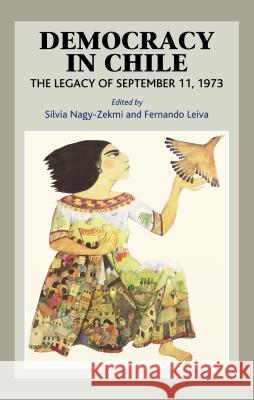Democracy in Chile: The Legacy of September 11, 1973 » książka
Democracy in Chile: The Legacy of September 11, 1973
ISBN-13: 9781845192020 / Angielski / Twarda / 2013 / 280 str.
In the 1990s, Latin America emerged from the horror of massive and systematic human rights violations as the region returned to civilian elected regimes. Many hoped that such transitions would bring about significant political, economic and cultural changea "the rebuilding of a more democratic order based on a culture of human rights that would reinvigorate democratic practices in the region. Despite the change in political regimes, such aspirations have come up against the "recalcitrant realities" of enduring military enclaves demanding impunity for past crimes, the persistence of neoliberal economics, ineffective and, in some cases, corrupt government coalitions, as well as the seemingly insatiable demands of private domestic and international capital for flexible labor and unregulated capital flows. This volume aims to re-examine Chile's 9/11a "a historically and symbolically charged eventa "and to explore the lasting legacy of the transformations brought about by the oppressive regimes of the '70s and '80s as they are being experienced today in the cultural, social and intellectual life of the region. Winner of the MACLAS (Middle Atlantic Council of Latin American Studies) Arthur P. Whitaker Prize for best book.











